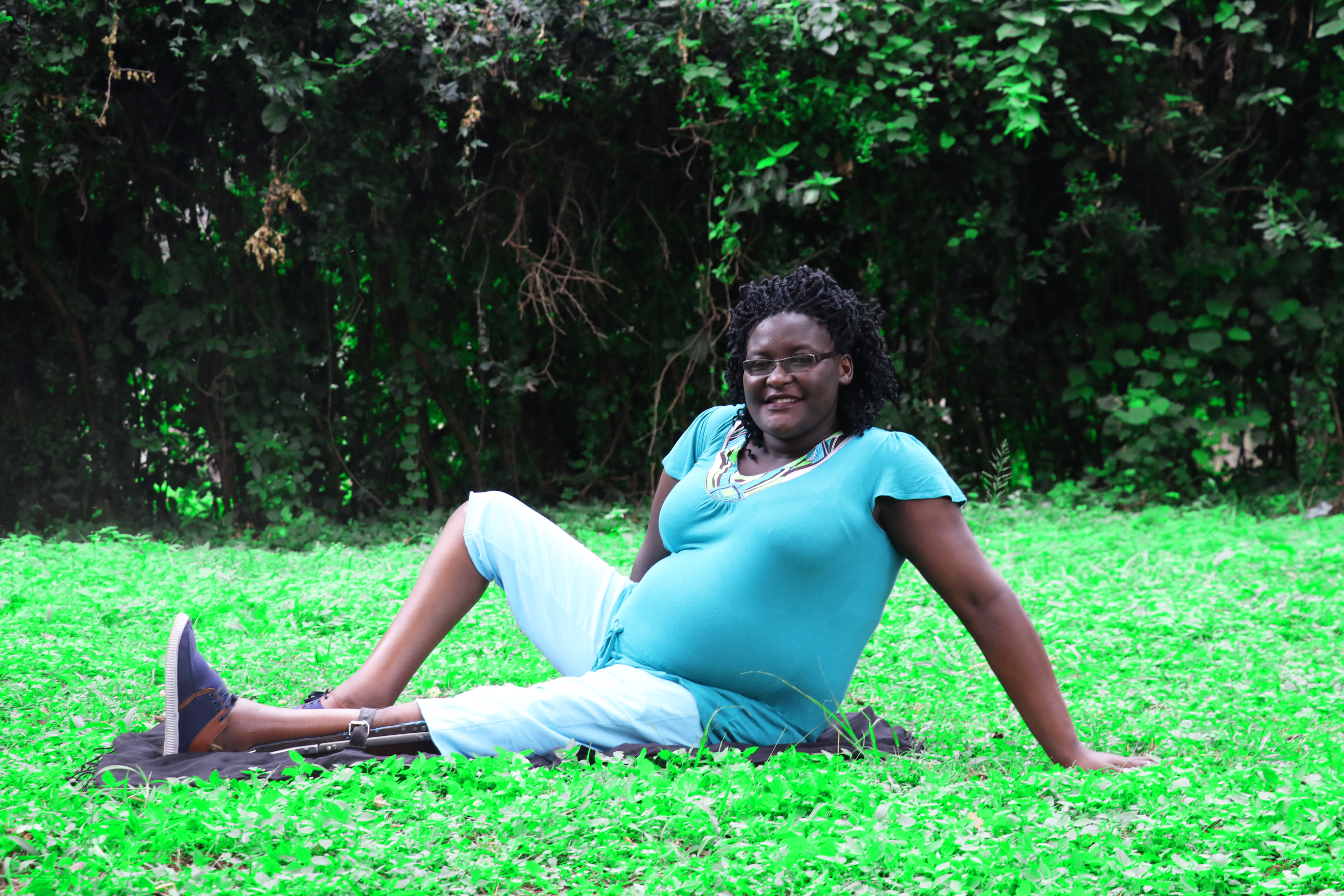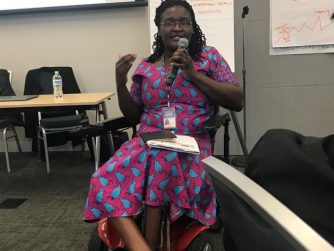“I think images of disability and sexuality either tend to be absent – disabled people being presented as asexual – or else Perverse and Hyper-sexual,” Dr. Tom Shakespeare. Disability and sexuality is the topic that is least discussed in public discourse, however there is so much myth around disability and sexuality and very little documented realities on lived experiences of persons with disability and sexuality, more so women with disabilities.
When the term sexuality is mentioned there are some attributes that are automatically tagged alongside which apparently are presumed to give sexuality a perfect description. Top among the attributes of sexuality is the “physical attractiveness” of the person. Society has prescribed the manner in which bodies are expected to behave both socially and politically. For instance a beautiful woman is expected to have a glowing skin, tall enough, possess certain curves in the body including the shape of the legs and hips, able to do a perfect catwalk, speak with a sweet voice among other attributes These constructs have led to categorization of human bodies such as masculine/feminine; mind/body; able-bodied/disabled; fat/skinny; heterosexual/homosexual; and young/old. This kind of categorization of human bodies determine access to opportunities and both internal as well as interpersonal relationships.
Think about how disability disrupts the dimensions of beauty as portrayed in the female human body outlook. Various types of disability interfere with the physical outlook and operation of human bodies. For instance people affected by polio present with wasted muscles on the limbs which then interferes with the recommended curves as a beauty parameter, those affected by visual disabilities might not present the “sexy eyes”. Vitiligo for instance will affect the skin condition whereas the deaf will be unable to sing with the “sexy voice”. Being a person of short stature implies that you don’t meet the standard height requirement to fit in the description of a beautiful woman. The description of impact of disability and perception of beauty goes on and on………………………………………

So, who is allowed to be sexual and own their sexuality in public? All sorts of marginalized bodies are denied sexuality. Disabled bodies are denied ownership of sexuality by also being portrayed as non-sexual entities in both public representation and in private. In general discourse, disabled bodies are perceived as non-normative and even defective or incomplete, and sexuality is the first casualty.
Body politics has heavily contributed to asexualization and infantilization of women with disability. It could be largely blamed for the devastating outcomes such as forced sterilization of women with disabilities, high level of low self-esteem among women with disabilities, denial of Parenting rights to some women with disabilities (cases where children are taken away from their mothers for the simple reason that they are disabled) and persistent inaccessible sexual reproductive healthcare and facilities among others.
The journey to full enjoyment of Sexual Reproductive Health Rights of Women with Disabilities begins when the myths around sexuality are demystified and body politics are interrogated in light of lived realities of women with disabilities.








You have mentioned very interesting points! ps decent website.Raise range
In today’s fast-paced world, staying informed about the latest advancements both domestically and globally is more vital than ever. With a plethora of news outlets vying for attention, it’s important to find a reliable source that provides not just news, but analyses, and stories that matter to you. This is where [url=https://www.usatoday.com/]USAtoday.com [/url], a premier online news agency in the USA, stands out. Our dedication to delivering the most current news about the USA and the world makes us a go-to resource for readers who seek to stay ahead of the curve.
Subscribe for Exclusive Content: By subscribing to USAtoday.com, you gain access to exclusive content, newsletters, and updates that keep you ahead of the news cycle.
[url=https://www.usatoday.com/]USAtoday.com [/url] is not just a news website; it’s a dynamic platform that empowers its readers through timely, accurate, and comprehensive reporting. As we navigate through an ever-changing landscape, our mission remains unwavering: to keep you informed, engaged, and connected. Subscribe to us today and become part of a community that values quality journalism and informed citizenship.
In today’s rapid world, staying informed about the latest updates both domestically and globally is more crucial than ever. With a plethora of news outlets competing for attention, it’s important to find a reliable source that provides not just news, but perspectives, and stories that matter to you. This is where [url=https://www.usatoday.com/]USAtoday.com [/url], a leading online news agency in the USA, stands out. Our commitment to delivering the most current news about the USA and the world makes us a go-to resource for readers who seek to stay ahead of the curve.
Subscribe for Exclusive Content: By subscribing to USAtoday.com, you gain access to exclusive content, newsletters, and updates that keep you ahead of the news cycle.
[url=https://www.usatoday.com/]USAtoday.com [/url] is not just a news website; it’s a dynamic platform that strengthens its readers through timely, accurate, and comprehensive reporting. As we navigate through an ever-changing landscape, our mission remains unwavering: to keep you informed, engaged, and connected. Subscribe to us today and become part of a community that values quality journalism and informed citizenship.
reliable canadian pharmacy
https://expresscanadapharm.com/# canadian pharmacy online ship to usa
canadian pharmacy ltd
Their adherence to safety protocols is commendable.
get generic cipro without dr prescription
They offer international health solutions without borders.
Thank you for your sharing. I am worried that I lack creative ideas. It is your article that makes me full of hope. Thank you. But, I have a question, can you help me?
Every pharmacist here is a true professional.
cost cheap cipro pills
They ensure global standards in every pill.
Their international shipment tracking system is top-notch.
gabapentin class of drugs
I’m grateful for their around-the-clock service.
Consistently excellent, year after year.
cost cheap lisinopril
Best and news about drug.
I’m really impressed with your writing talents and also with the layout to your weblog. Is that this a paid subject or did you customize it yourself? Either way stay up the nice high quality writing, it is uncommon to peer a great blog like this one nowadays!
medicaid preparation services require specialized knowledge of complex regulations. Our attorneys can help.
Your point of view caught my eye and was very interesting. Thanks. I have a question for you.
I don’t think the title of your article matches the content lol. Just kidding, mainly because I had some doubts after reading the article.
I don’t think the title of your article matches the content lol. Just kidding, mainly because I had some doubts after reading the article.
I don’t think the title of your article matches the content lol. Just kidding, mainly because I had some doubts after reading the article. https://accounts.binance.com/ru-UA/register?ref=OMM3XK51